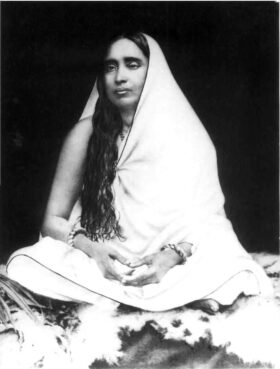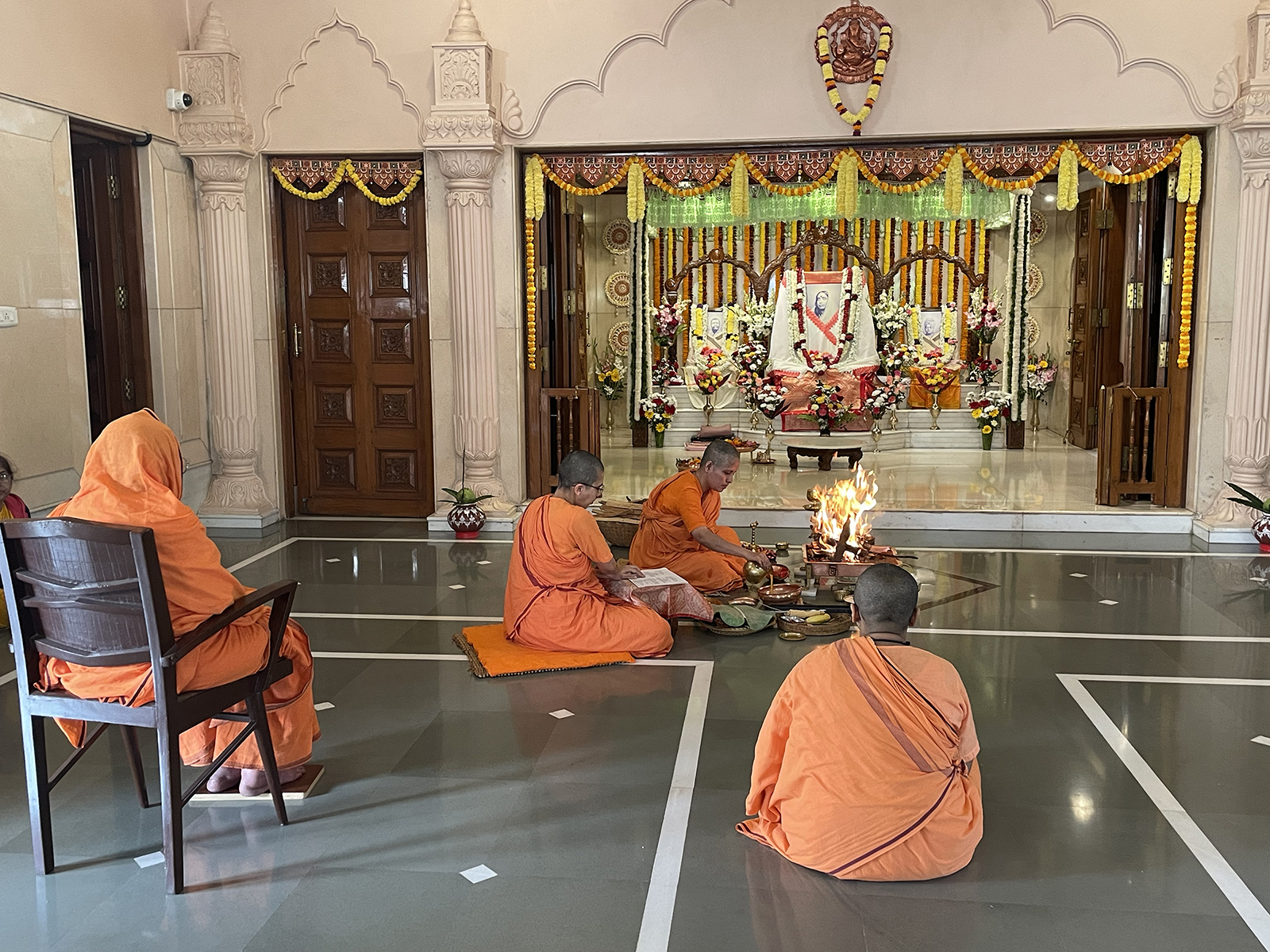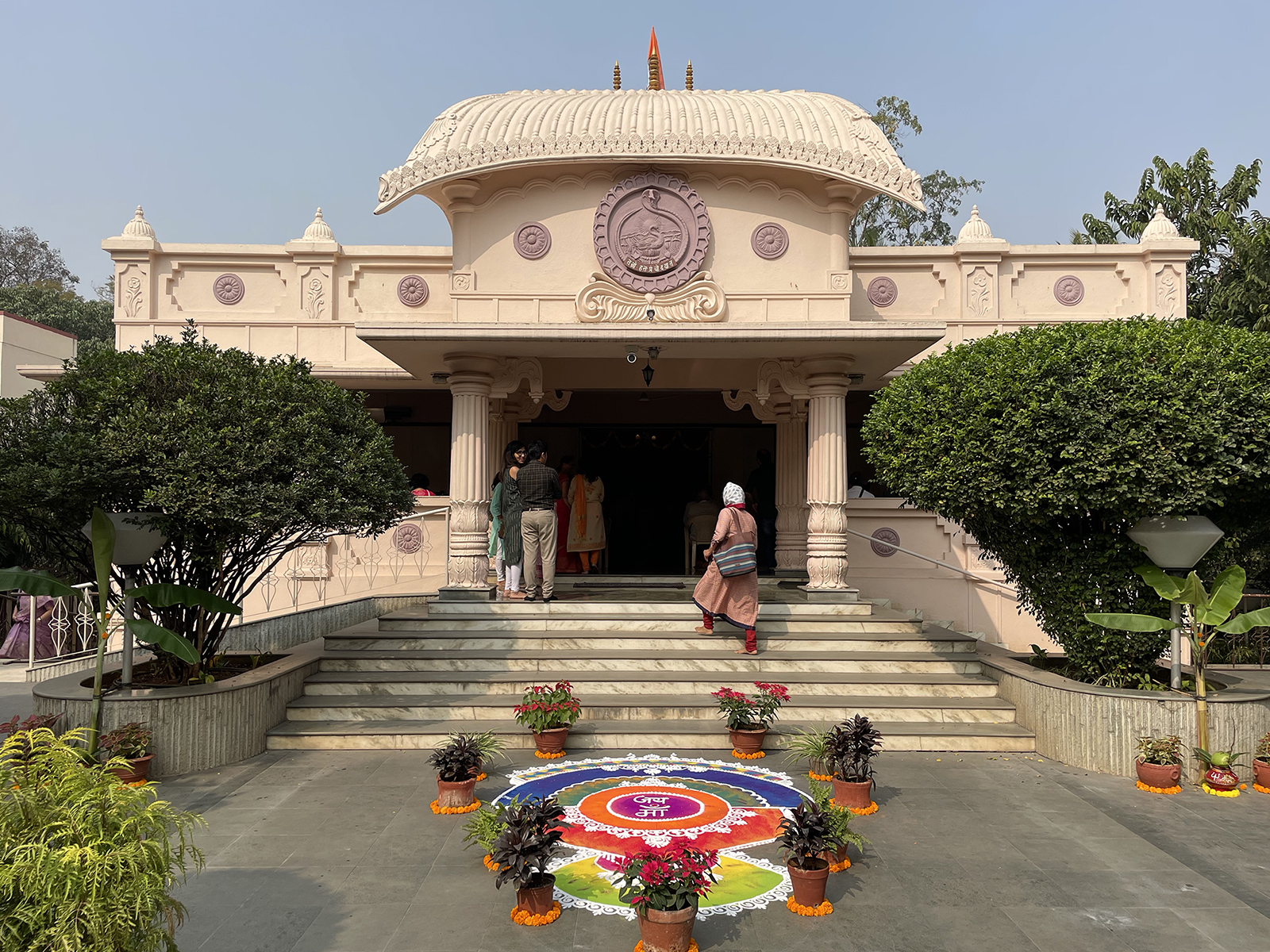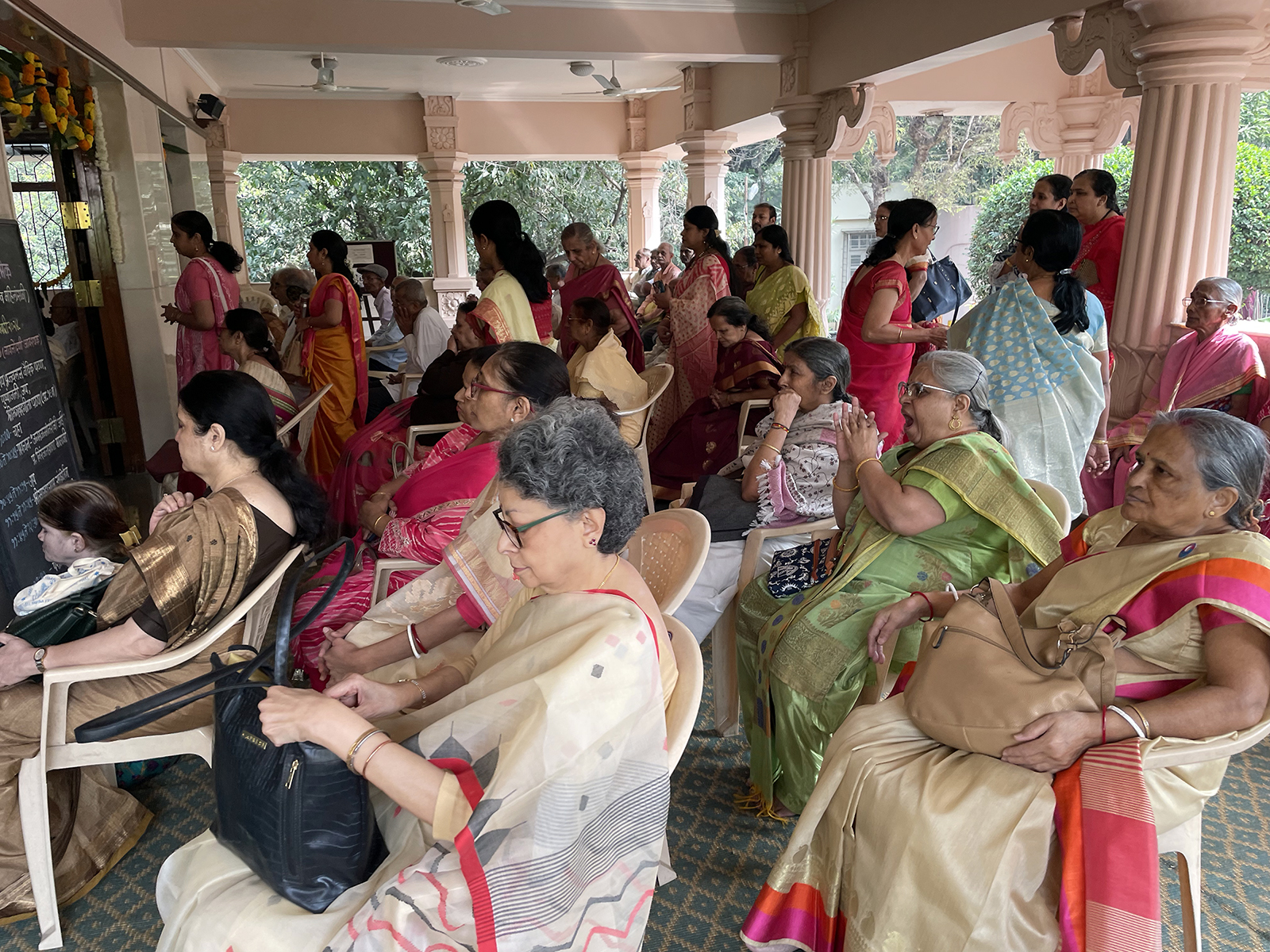PUNE, India (RNS) — The revered guru Swami Vivekananda, whose spiritual writings have inspired Hindus and non-Hindus of all ages from the East to the West, would have turned 160 years old on Friday (Jan. 12).
But while many celebrate him on his birth anniversary, also called National Youth Day in India, some fervent believers pay homage to the woman behind his movement, a wife, mother and teacher named Sarada Devi.
Vivekananda, born in Kolkata, India, in 1863, is often credited with raising Hinduism to the status of a major world religion with his address to the 1893 Parliament of Religions in Chicago, in which he talked about his Vedanta tradition. An instant celebrity, he went on to deliver hundreds more talks across the United States and Europe.
Returning to India, he opened a Vedanta institute named for his guru, Ramakrishna, and the Ramakrishna Mission, delivering spiritual training, charity and social welfare services to generations of devotees. His speeches and writings are still widely read throughout the world.

Sarada Devi, circa 1890. (Photo courtesy Wikipedia/Creative Commons)
Sarada Devi, whom devotees call Holy Mother, was the wife of Vivekananda’s own guru, Ramakrishna Paramahansa. Her life, simplistic and uneventful compared to Vivekananda’s, has a powerful message for the women who follow her, highlighting the transformative power of inner character.
“She was so simple, there’s no glamour around her,” said Sandhya “didi,” or sister, a monk at Sri Sarada Math, the monastery devoted to Sarada. “One of the greatest blessings we had was to come to know her.”
Born to a poor village family in West Bengal in 1853, Saradamani Devi was betrothed to 23-year-old Ramakrishna when she was just six. She had no formal education but developed a powerful inner spirituality. It is said that she offered “japa,” a form of sacred chanting, 1,000 times per day.
This is one of the great lessons her followers take from her life. “Whatever the circumstance, you cannot change anything around you, but you can change yourself,” said Sandhya didi. “By changing yourself only can you see things change.”
And despite her lack of schooling, she became a champion of education for other women, inspiring numerous schools and study centers in her name across the country.
The female monks at Sri Sarada Math celebrated Sarada Devi’s birth anniversary on Jan. 3, in accordance with the Hindu auspicious calendar. A group of devotees, mostly women dressed in plain saris, came to meditate and chant her name. They bowed their heads as the monks, wearing orange robes and shaved heads, lit a fire “havan,” or home, in Sarada Devi’s honor on the math’s “biggest day of the year.”

Female Hindu monks celebrate Sarada Devi’s birth anniversary on Jan. 3, 2024, with a ceremonial fire at Sri Sarada Math in Pune, India. (RNS photo/Richa Karmarkar)
Sandhya didi felt called to live under one of the many monastic sects based on Vivekananda’s teachings. It was a “revelation,” she said, for her to learn about this type of life, where one forgoes a marriage and family to further their spiritual discipline.
Yet Sandhya didi admits she did not think much about Sarada Devi until she read that Vivekananda had called Sarada Devi the “mother of the universe.” Then she began to feel an unbreakable bond.
“What she is still, we can’t fathom,” she said. “She’s so deep. But still, she is Ma. If your Ma is a princess, if your Ma is a doctor, for a child it doesn’t matter. She’s mother, and that’s all.”
Some 15 women stay in the ashram, starting their days at 4 a.m., raising and cooking homegrown vegetables and fruit, studying Hindu Scriptures, learning Sanskrit and performing rituals, all in service to their central figure. Some even read the Quran, considering Ramakrishna’s teaching that “each religion is true,” said Sandhya didi.
The color of their robes is determined by the stage of their ascetic journey. The newer they are, the less likely they speak to outsiders, lest their concentration falter. Some women come in their early 20s, after studying fields like dentistry or commerce. But here they are equals, working in whichever job suits the community.

The Sri Sarada Math, or ashram, in Pune, India. (RNS photo/Richa Karmarkar)
“The old monasticism, with its severity, is not there. We function like any middle-class family,” said Sandhya didi, adding that personality clashes between women with different upbringings are inevitable.
But the monk credits the math’s volunteers with being more blessed. Despite family obligations, they devote their time, some walking a kilometer in each direction to work at the center. “For us, it is our duty,” Sandya didi said. “They are coming for the love of it.”
Shreeda Bhagwat, a longtime volunteer, sells biographies of Sarada Devi, Sri Ramakrishna and Swami Vivekananda outside the math’s main temple. It is through tears only, she says, that she can talk about the role the holy mother plays in her life.
“I live alone, because all of my relatives live in the United States,” she said, “and now my parents have also expired. So, who will I speak to? Everything I tell to Holy Mother. She is my mother, that’s it.”
And though women run the ashram, Sagar Dhanurkar, a male software engineer, often frequents the Sri Sarada Math. His own mother, a teacher at the adjacent Swami Vivekananda School, taught him the value of recognizing the Holy Mother’s importance.

Hindus, primarily women, celebrate Sarada Devi’s birth anniversary on Jan. 3, 2024, with a special ceremony at Sri Sarada Math in Pune, India. (RNS photo/Richa Karmarkar)
“She is the mother of not only the pious, but also the wicked,” said Dhanurkar. “That draws me over here. I say ‘Ma, I have committed some sins,’ or ‘Ma, I have done this good thing.’ Whatever we do in our life, we commit that to her.”
As the sun sets on Holy Mother’s birthday, Sandhya didi reflects on the lasting power of Swami Vivekananda, whose books she has read five times over.
“Those books are published everywhere,” she said. “They are meant for all. This sangha (community) is meant for laypeople and monastics. What is true for us is true for you also.”